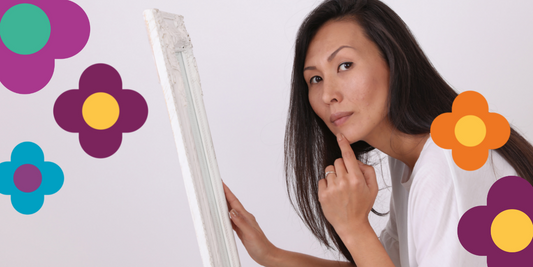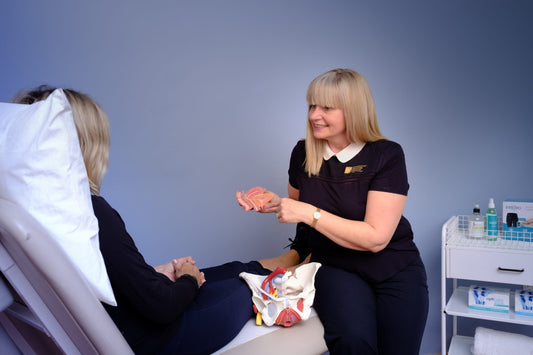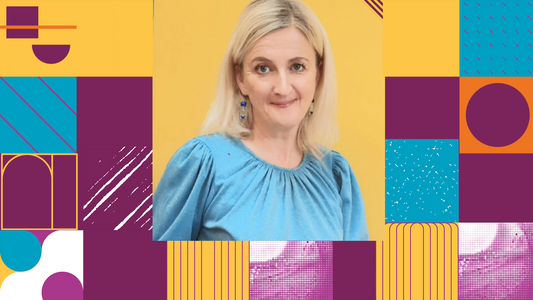We spoke with Dr. Caoimhe Hartley, of the Menopause Health clinic, about preparing women for menopause.
As part of our Key Experts series, which sees us sit down with leading medical experts, we spoke to Dr Caoimhe Hartley of Menopause Health in Dublin. Dr. Hartley specialises in women’s health, particularly during menopause. The following is directly from Dr Hartley.
"I’ve specialised in menopause since 2016 and I’ve worked in the area of women's health for more than a decade. I opened my Menopause Health clinic in 2021; I have two doctors working with me at the moment, with a third arriving shortly.
I love that nowadays there are more stories about menopause; more ways for women to talk about and share their experiences. It’s great to normalise things. However, at the same time we also need better education, knowledge, and information. We have to make sure that women are empowered and confident to go to their doctors, to go to a clinic, or go to specialists and feel like they're better armed to have a more productive conversation. So yes, the open dialogue is really important – but it has to go somewhere too. We have to back up all the discussion with actions that actually make a difference to the lives of ordinary women.
From the medical profession at least there’s better engagement too. I do some teaching through the Irish College of General Practice; I'm involved in the women's health module that they hold for GPs. I think in the past there probably wasn't enormous interest in women’s health from medical professionals. That’s really changing. I did a webinar for the ICGP a few months ago and more than 2,000 people attended. So doctors are getting better versed.
Because around ten, fifteen years ago, women going through menopause might have felt that their GP wasn’t really listening to them – and certainly didn’t understand them.
There was a sense that your GP would be trying to get you out the door as quickly as possible after deciding that you were either depressed or needed to go on a load of HRT.
There wasn’t, unfortunately, a conversation or a discussion about options or best-practices or even a steer about where to find support or information. Thankfully, that’s improving rapidly. That evolution is so needed – because if there’s a lack of in-depth specialisation from a medical POV, then it's very difficult for knowledge to trickle down in a meaningful way to the female patients themselves.
I worked for five years in Canada and for part of that time I was there, I was based in a really impressive, dedicated women's clinic. That clinic started out small with just a handful of us but grew to a team of more than a dozen. I was surrounded by this hugely inspirational group of women who were all GPs but had decided that women's health was their thing and that they really wanted to be experts in that field.
What is brilliant about a specialist women’s health practice is just the time and freedom to speak openly about health concerns. Without that environment – in a more general GP practice, for example – women would come in to see you and talk about the likes of contraception or heavy periods. Then, just as they were about to get up and leave – literally on their way out the door – they would shoehorn in a list of symptoms connected to hormonal changes or perimenopause. It was like, ‘Oh by the way…’ as they were getting on their coat. Personally, I got really fed up of having to try and rush these important discussions – especially relating to something as broad-reaching as menopause (and after having a consultation on something completely different too!).
At the time I reflected on why this was happening so often, and I suppose the reason was simply that women weren't aware of the symptoms of peri-menopause because no one had explained to them.
Most women are more or less aware of menopause. They’ve heard about hot flashes and night sweats. But the pre-menopausal women didn’t understand what was happening. There was a reason their periods were changing. There was a reason they were feeling really tearful or irritable at times. That was just a lack of joining up the dots through no fault of their own. They hadn't been properly informed and also they just deprioritised their own health and wellbeing.
There's not a huge amount of specialisation within general practice here in Ireland – but I’ve seen first-hand how it works and why it can make a difference. That’s one of the main motivations for setting up Menopause Health. "
We’ve gotten much better at preparing younger girls for puberty. Now – finally – it’s time to better prepare women for menopause.

Dr Caoimhe Hartley established Menopause Health in Dublin this year. She aims to deliver excellence in menopause care by specialist, accredited experts.
Dr Caoimhe qualified from Medicine in UCD in 2007. Since then, she has worked to hone her skills in the areas of women’s health and menopause care. She is accredited by the North American Menopause Society and the British Menopause Society.
Dr Caoimhe is furthermore a member of the Advisory Board of the European Menopause and Andropause Society.
www.menopausehealth.ie













